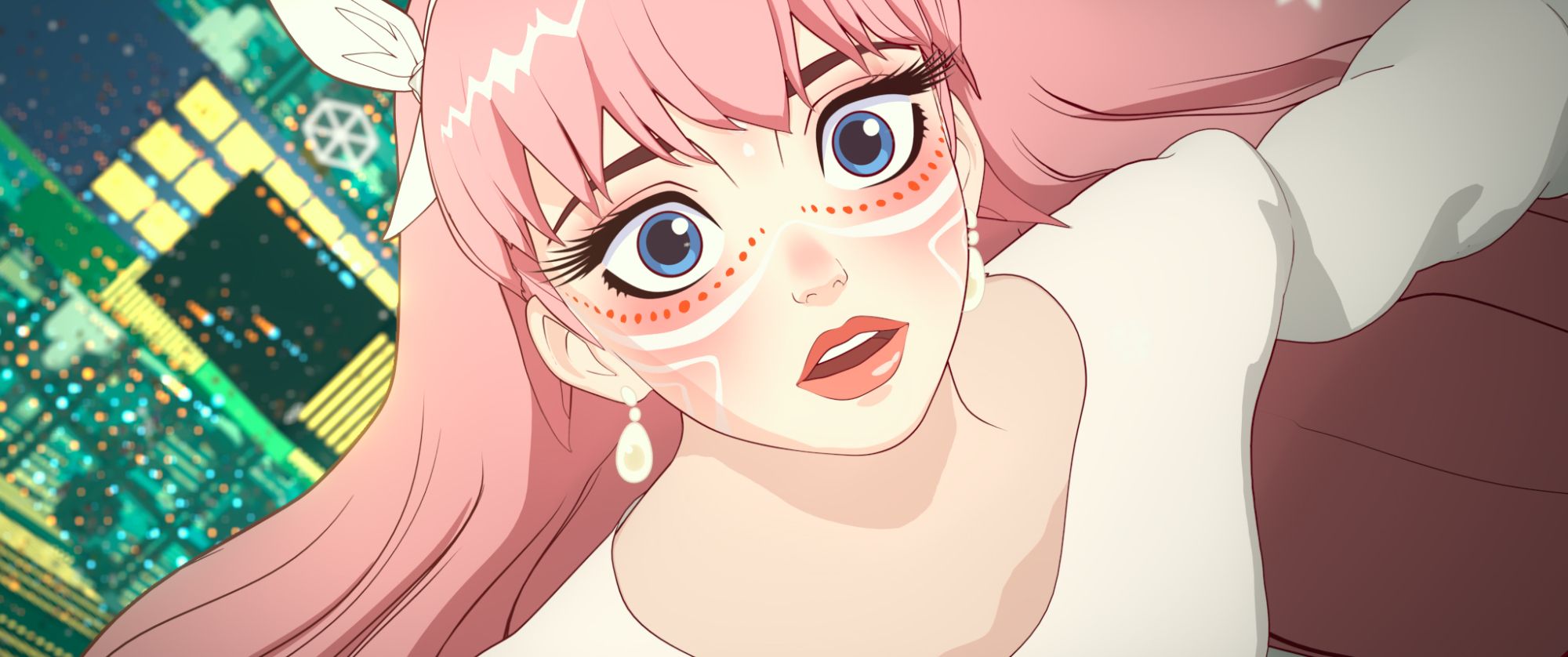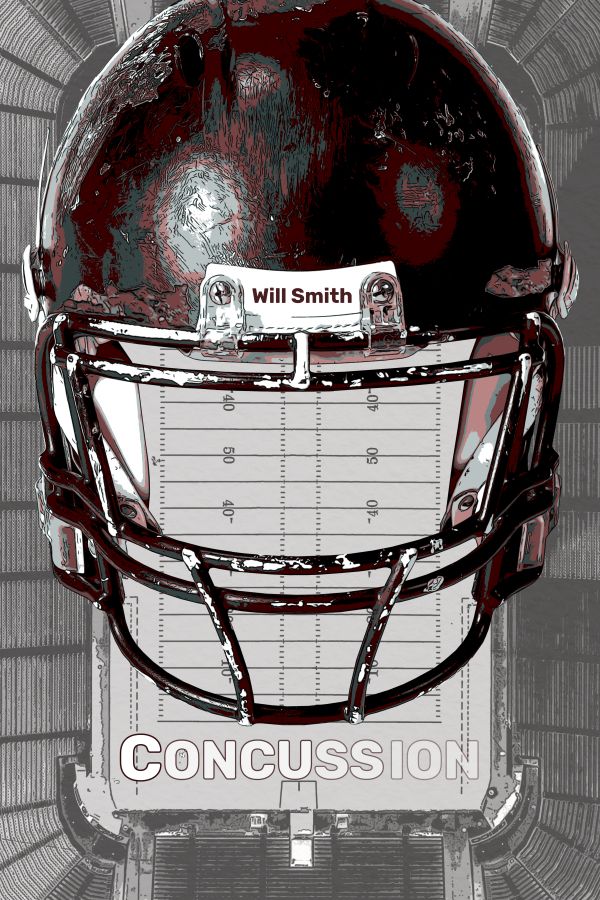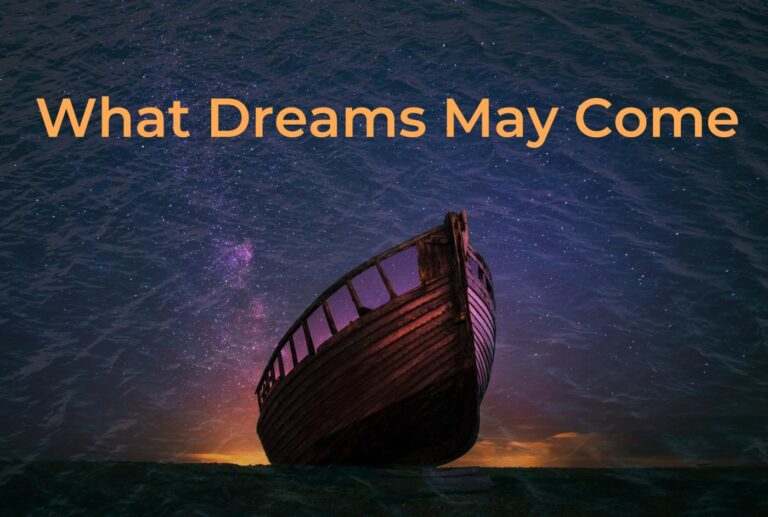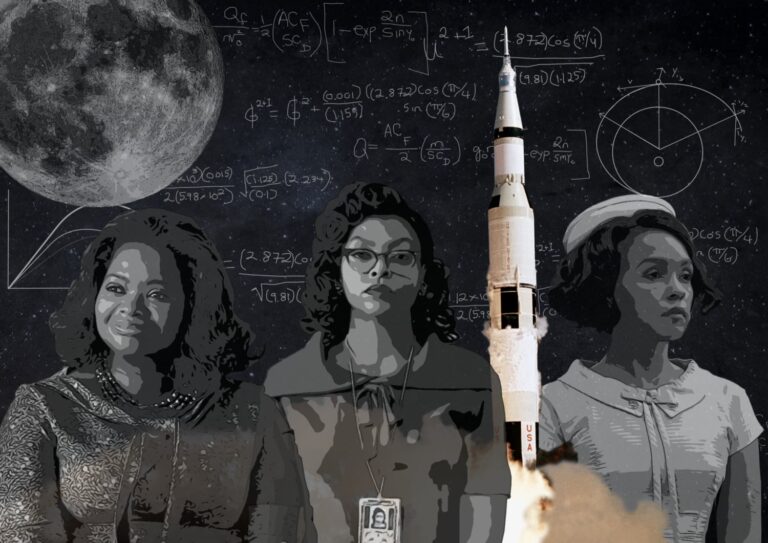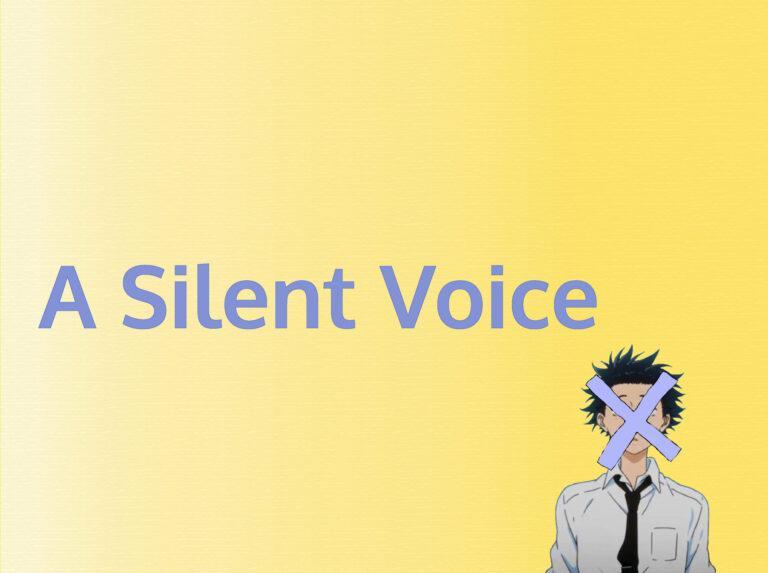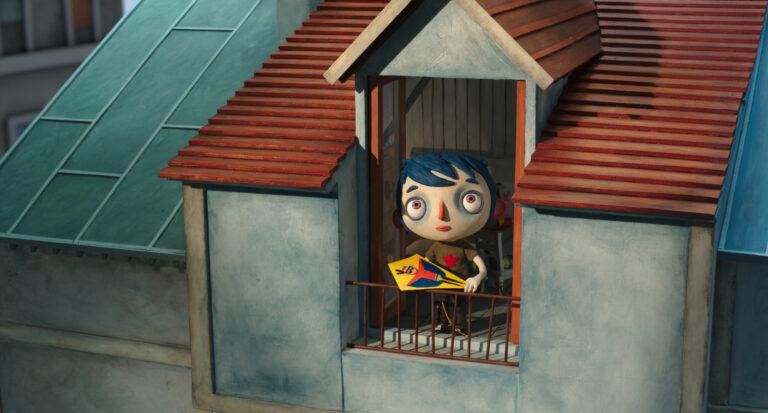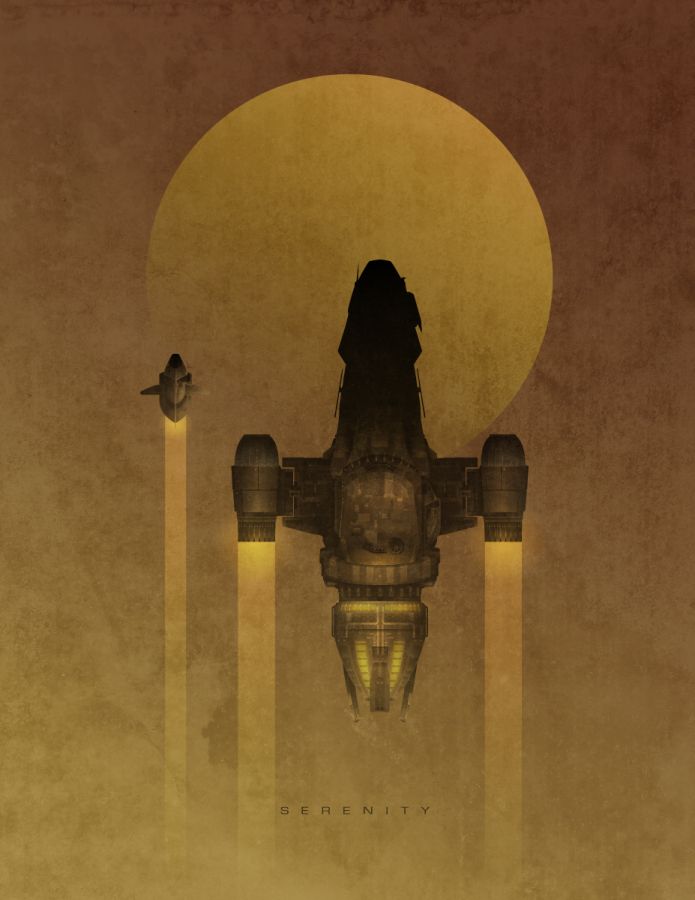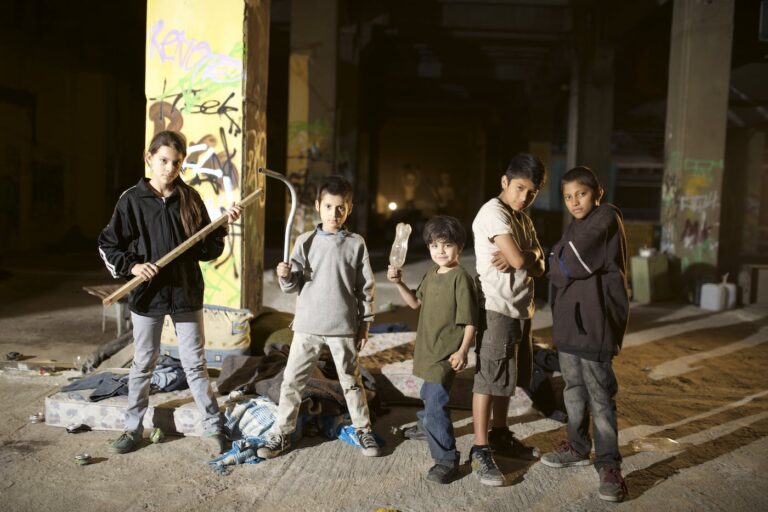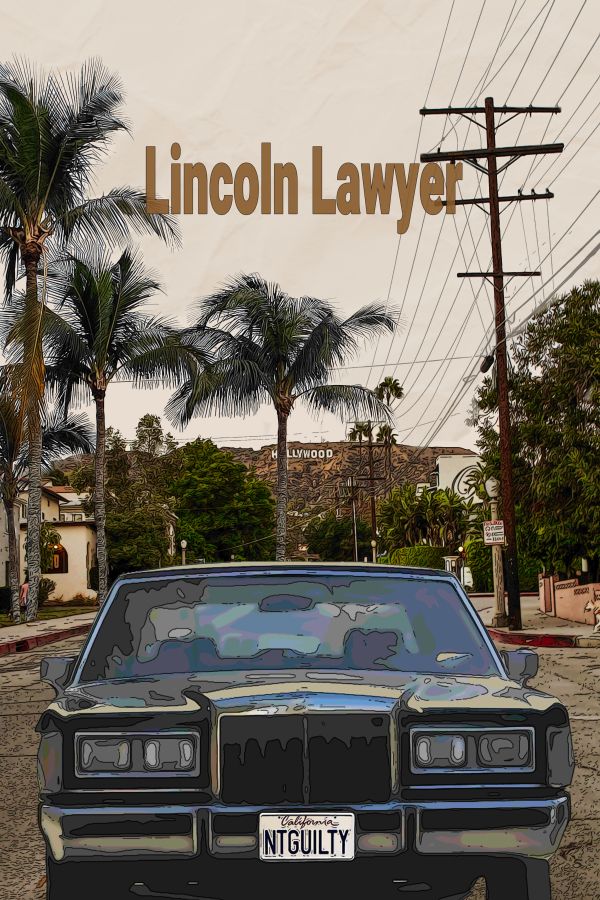A beautiful depiction of society, individuality and our relationship to technology told through a powerfully crafted reimagining of beauty and the beast. Belle: The Dragon and The Freckled Princess is a joyful animation that pulls at the heart of today’s society, and its relationship with social media.
Belle tells the story of its heroine Suzu as she first enters a virtual reality – U – and becomes redefined as Belle. It’s here that she finds an escapism from life’s grief and pain, but also the chance to find out who she is and what she is capable of – the power of one making a difference to others.
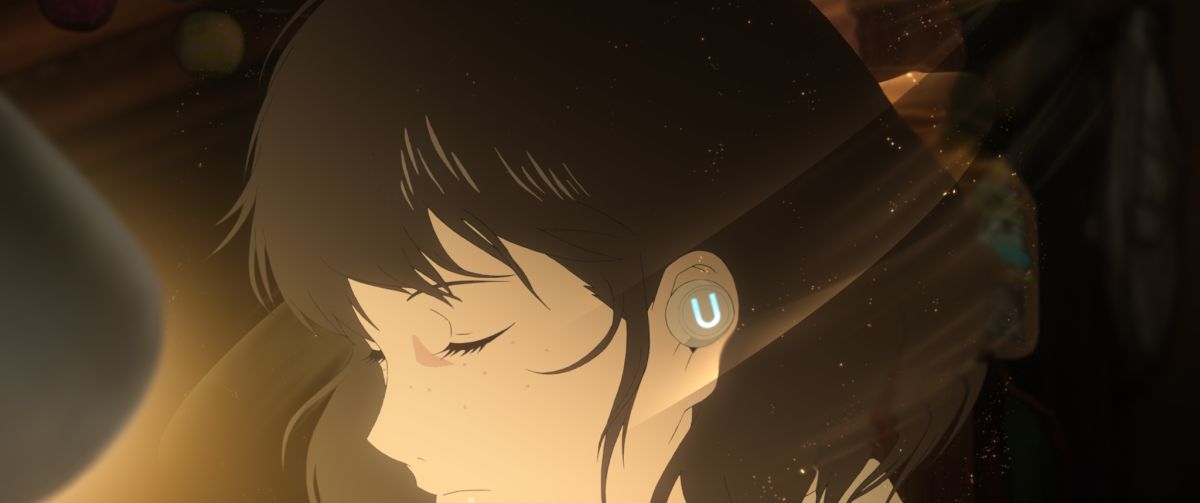 Courtesy of © 2021 STUDIO CHIZU
Courtesy of © 2021 STUDIO CHIZU
Consumed by the loss of her mum, Suzu has been unable to enjoy, or even join in with life since her mum’s death. The act of singing alone making her violently sick. But when someone suggests ‘U’, a metaverse that through an array of biometric sensors brings out the inner you, Suzu finds herself transformed into Belle, and once again able to sing. In discovering her voice, so to do others, and her music soars in popularity. Her tone and words reaching people, while Belle also explores the other side of the coin – the unneeded hatred of those who ‘troll’ freely with the anonymity of technology. And that’s just it, the film lies in between showing the two sides of life and technology; the good, but also the bad, with the former having the greater gift of unity and strength – for in the first scene where Belle is spoken to cruelly, it’s one person’s kindness that has more power.
Belle equally shows the real-world life of Suzu; that of a teenage high-schooler; complicated social circles, and its delicate line of where to tread; how she retreats from family and friends; to the life she discovers in being Belle and the freedom and expectations in this. But U is not a virtual reality filled with imaginative and otherworldly sets, but a chance to be free in your expression and self, and in this Belle discovers that although she’s hurting from grief, there are other pains to be had – enter the Beast. Covered in bruises, and hunted by those who define themselves as keepers of peace (including this film’s version of Gaston; Justian, a power-hungry deliverer of ‘justice’), the beast is shown to be angry and afraid. And it’s only Belle that seems to see the sadness in his eyes.
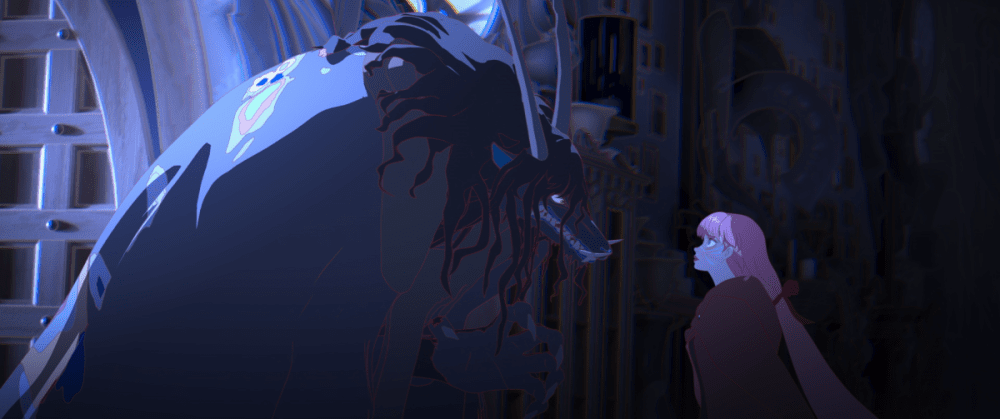 Courtesy of © 2021 STUDIO CHIZU
Courtesy of © 2021 STUDIO CHIZU
As with all ‘avatars’ in the world of U their real identities are kept hidden, but Belle is desperate to find Beast and to help him with the bruises of his life. Here the film brilliantly delves into how much information you can gather though technology, but also how it can be faked and misinterpreted, with assumptions only later clarified. For example, in the character of a celebrity sportsman whose skin is always covered up, and which results in the accusation of him being a violent man. But when he shows his skin he reveals the scars of childhood surgeries, and with this he encourages viewers to never give up on their dreams and to work for them.
Another divide of Belle is between the adults and the children, with the children seeing Beast as both a hero, and someone in need of help, they even ask the adults to rescue him, rather than persecute.
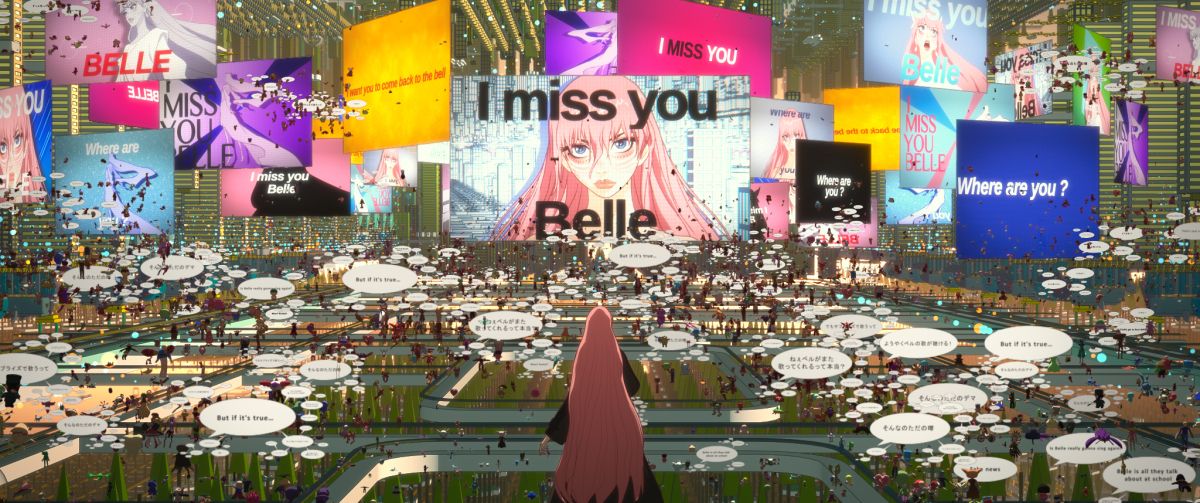 Courtesy of © 2021 STUDIO CHIZU
Courtesy of © 2021 STUDIO CHIZU
When Beast is finally met in reality, he gives a moving and pointed speech about the uselessness of “help” and that for all the various talks and mentionings of the word, it has only resulted in inaction. A powerful message to our overuse of the word in society, and our belief that by saying or offering ‘help’ it imbues the word with the power of change, here the film shows the need for its accompanying action.
When a stand is taken, and in particular against bullies, they are shown to be weak; presenting one front to the world (through social media) and another behind closed doors (but also revealed through technology, for example in the case of a video chat). This is further highlighted by the ending, which although lovely and with a sense of empowerment also seemed dangerously naïve, but I’m going to choose to believe in hope here.
Emotionally charged, the film creates lighter moments with the inclusion of typical anime expressions, such as an extreme reaction of embarrassment when crushes are announced, and it’s done to hilarity. Belle/Suzu’s songs (voiced by the very talented Kaho Nakamura) are a great highlight of the film and are haunting to upliftingly enchanting – the songs full of melody and emotion that you’ll want to watch and hear them again and again. The illustrations beautifully pairing with the music.
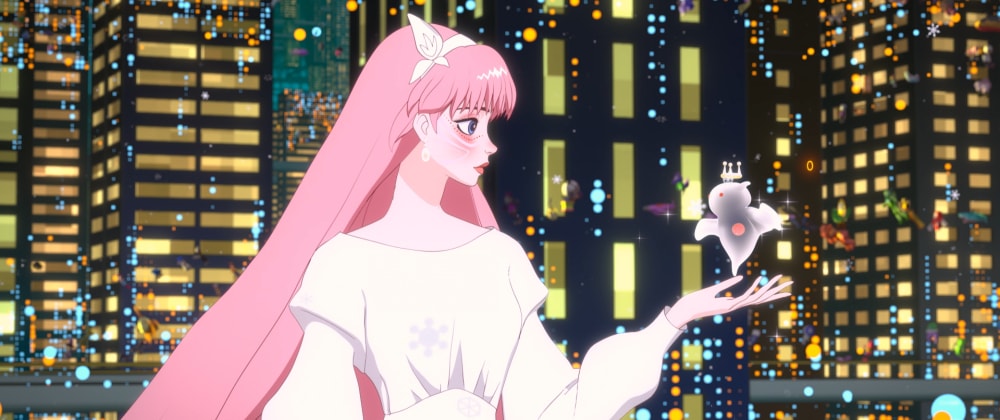 Courtesy of © 2021 STUDIO CHIZU
Courtesy of © 2021 STUDIO CHIZU
There are times the film’s pacing and editing of scenes may cause some initial disorientation with a lack of preceding information. However, by not filling in the gaps, which many films do, it has a more fitting setting for our everyday life – in which we do not go about explaining every step we make, or person we meet. Belle is a window into Suzu’s world and as such it would be incorrect and false to present as a succinct story. Having said this, the scenes and story are still easy to follow, the complexity lying more in unspoken emotions. Even these however are made clearer in the end, with us seeing – via technology – the pain “Beast” has and does endure, and for Suzu in seeing the memories of her mother’s passing – with it now holding a semblance to her own choices.
In Suzu’s choice she gains a deeper understanding and forgiveness of her mother’s decision – risking herself for the sake of another, and it is with this that we see a brief and larger picture of how the people in Suzu’s life are connected to her. Showing her not to be alone and neither is her virtual self ‘Belle’. Her parting song displaying the strength to bridge across the real world and the virtual, and through an empathetic echoing of their own loneliness, love and hope. It’s no surprise then that Belle:The Dragon and The Freckled Princess, received a 14-minute standing ovation at Cannes in 2021, its melody and message still happily repeating in my head 14 days later.
Director & Writer: Mamoru Hosoda
Other notable works:
- Mirai 2018
- The Boy and the Beast 2015
- Wolf Children 2012
- Summer Wars 2009
- The Girl Who Leapt Through Time 2006

